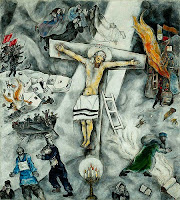Go To the Limits of Your Longing
God speaks to each of us as he makes us, then walks with us silently out of the night. These are the words we dimly hear: You, sent out beyond your recall, go to the limits of your longing. Embody me. Flare up like a flame and make big shadows I can move in. Let everything happen to you: beauty and terror. Just keep going. No feeling is final. Don't let yourself lose me. Nearby is the country they call life. You will know it by its seriousness. Give me your hand. Rainer Maria Rilke Book of Hours, I 59















